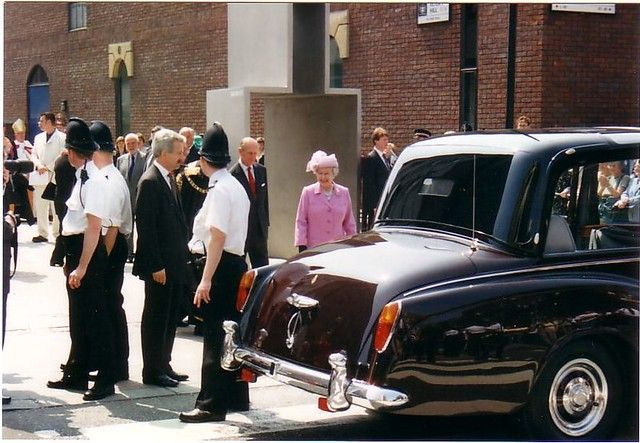Cursing and swearing, which used to be frowned upon, have become so commonplace today that people use profanity without giving it much of a thought. But of course this got some royal family fans thinking — what happens if a person curses at Queen Elizabeth II?
“Nothing,” Kate Baxter said, answering a similar question on Quora. “There used to be an old law called lese majeste which had to do with insulting the king or queen. It was abolished years ago,” she added. Apparently, Queen Elizabeth can’t do anything these days if a subject decides to curse her for whatever reason.
But of course the Queen’s or his bodyguards’ response would be situational. “It would depend on circumstances,” Tony Walton wrote. “If somebody rushed up to her and started berating her, they'd be subdued by police and removed, and possibly be prosecuted for threatening behaviour, conduct likely to cause a breach of the peace or whatever was appropriate, just as they would if they rushed up to me and started yelling at me.”
Otherwise, the Queen will probably just ignore the rude comment. After decades of living with Prince Philip, who’s known for his swearing, it’s safe to assume that she won’t be easily perturbed with foul language as she probably heard worse.
Quora user Andrew Fennelly even shared an anecdote where a man unintentionally swore in front of Her Majesty. After realizing his mistake, he apologized profusely to the monarch.
But Queen Elizabeth took it in stride. “I am the daughter of a sailor, the wife of a sailor and the mother of a sailor. I have heard them all,” she quipped.

But if it were back in the days when the lese-majeste laws were still in effect in England, swearing or cursing a monarch can have dire consequences. For instance, a man named Thomas Kerver once disparaged Henry VI’s manhood and even called him a child in 1444.
Kerver’s punishment for insulting the monarch was rather harsh by today’s standards. He was “hung, drawn and quartered” for that offense.
While freedom of expression now reigns supreme in England, there are still a few places in the world where insulting the king can lead to serious trouble. In Thailand, for instance, the lese-majeste laws are still in effect, and people, including foreigners, have been arrested for actions viewed as insulting to the king.

© 2025 Latin Times. All rights reserved. Do not reproduce without permission.



